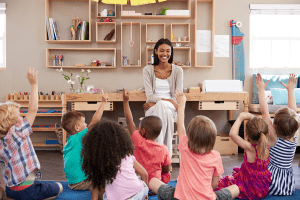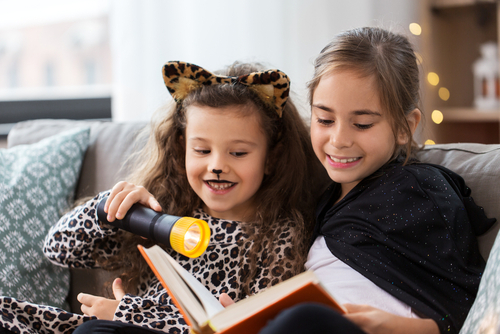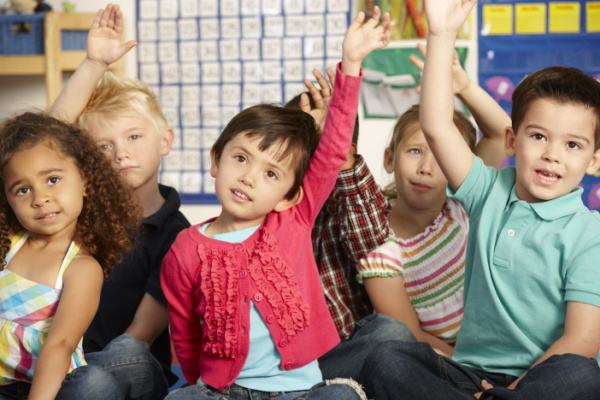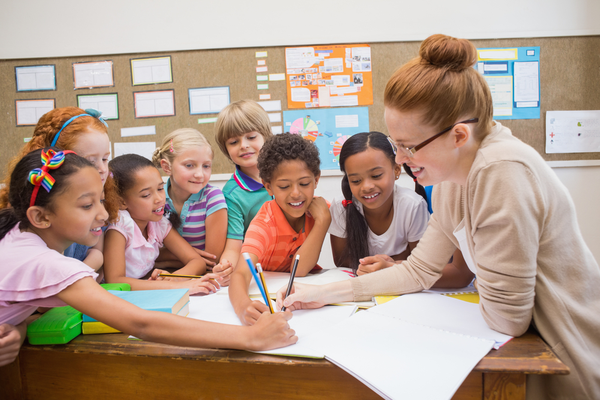Feeling cared for and learning through play are among the rights that every child deserves. Children should have the chance to enjoy their childhood and feel supported by parents, carers, communities and, importantly, early childhood education providers.
Each year Children’s Week dedicates itself to celebrating the needs, rights and achievements of children, while strongly advocating for the United Nations Convention on the Rights of a Child. From Saturday 21 October to Sunday 29 October 2023, be inspired by Children’s Week. A high-quality early childhood education can change a child’s life. Along with the day-to-day joy that early childhood education can bring to children, it can also be crucial in laying the foundation for a love of lifelong learning.

Every educator has the chance to make a meaningful difference in a child’s life, and with adequate training and support, they can continue to contribute to shaping the future for the youngest members of our communities.
Children’s vital first five years
Over the course of a child’s life, it is within the first five years that the human brain experiences its most critical period of development. During this time, more wiring takes place than at any other time in life.
This is also the period that most children will spend many hours or days each week in the care of early childhood educators and kindergarten teachers. This means that educators and their approach to care can contribute to many aspects of a child’s future and how they see the world, not to mention helping children to explore the world around them and discover a passion for lifelong learning.
At Practical Outcomes, it is our firm belief that access to early childhood education delivers to communities across many fronts, and is:
- The right of every child
- The right of every future adult
- Of benefit to society on every level
- A driver of tangible economic benefits in society
The Early Years Learning Framework (EYLF) supports educators in achieving the very best outcomes for children during this fundamental stage of development. Its five learning and development outcomes cover five central outcomes that have been identified to ensure that children are empowered and have their rights and needs fulfilled.
EYLF outcome areas
- Outcome 1: Children have a strong sense of identity
- Outcome 2: Children are connected with and contribute to their world
- Outcome 3: Children have a strong sense of wellbeing
- Outcome 4: Children are confident and involved learners
- Outcome 5: Children are effective communicators
The opportunity to access quality early childhood education and learning experiences plays a pivotal role not just for children’s early learning, but for their lifelong learning and development. This is particularly true for children coming from disadvantaged backgrounds or circumstances who may need additional support via early childhood education to gain the skills needed to thrive in future educational settings such as primary school and beyond.
The crucial role of early childhood educators
Early childhood educators who are highly trained and dedicated to children’s development and well-being are essential to delivering engaging educational experiences.
Carefully thought-out educational experiences should be centred around meeting the Early Learning Framework outcomes, and educators should take a holistic and play-based approach to the care and education they provide, guided by the outcomes mentioned earlier.
Let’s explore some real-life examples of how educators can design learning experiences to meet these outcomes.
Outcome 1: Children have a strong sense of identity
Providing care that makes children feel safe, secure and supported through comfortable relationships with educators makes a positive contribution to a child’s sense of identity. Children should simultaneously be encouraged to explore their independence from this safe space and feel capable of expressing their feelings.
In developing their identities, children can also seek a sense of belonging. Educators should strive to promote the shared connectedness children have through celebrating Australia while also developing their individual identities through encouraging pride in their diverse families, cultures, backgrounds and circumstances.
Outcome 2: Children are connected with and contribute to their world
Building further on that sense of belonging and inclusivity strengthens a child’s sense of identity and encourages them to respect diversity. A strong sense of community within services and more broadly in the local community helps children connect with the world around them.
Create experiences that help them to contribute to it too. This can be planting trees, visiting local parks and even getting close to their local area through bush kinder experiences.
Outcome 3: Children have a strong sense of wellbeing
Wellbeing encompasses physical and psychological health, both of which are enormously important in development and lifelong learning.
Eating well, getting physical exercise, understanding how to identify and manage emotions, feeling happy and confident in their environments and being guided to build resilience — these are all contributors to developing a strong sense of well-being in children.
Outcome 4: Children are confident and involved learners
Educators should seek to provide learning experiences that cover a variety of approaches to ensure every child’s individual learning style or preferred learning environment is met. A child’s active involvement is the ideal outcome for optimal learning and every child is different.
Discover all the senses in sensory exploration play, and use creativity and art to learn and explore imaginary play. Encourage curiosity and build confidence through celebrating new discoveries.
Outcome 5: Children are effective communicators
Effective communication is central to any lifelong learning across every age. Communication is the capacity to share thoughts and ideas and is essential from literacy to numeracy, and languages spoken at home as well as English. It can include non-verbal, verbal and written communication, so educators can explore books, dance, Auslan, singing and more.
The guidance of strong educators can help children develop across a variety of areas and give them the knowledge and tools to be able to reach their full potential and flourish.
Lifelong learning in early childhood education
The quality of a child’s early childhood education can make a huge difference to their future. This significant stage of development requires the care and guidance of educators who believe in a child’s right to thrive and learn. Every day is a new opportunity to learn, no matter your current age or qualifications, which is why continuing to undertake professional and personal development ventures and exploring upskill options are important.
Every step of the study journey is carefully considered here at Practical Outcomes. It is a privilege for us to be able to train individuals to become skilled, caring and compassionate early childhood educators. Our trainers are sector experts and our courses are designed to help learners become the best educators they can be.
Our focus on practical placement and developing soft skills equips our learners with the knowledge, skills and qualities to become valuable early childhood educators and make a difference in the lives of children.
For a bright future supporting children’s lifelong learning through early childhood education, explore our courses and get in touch.



